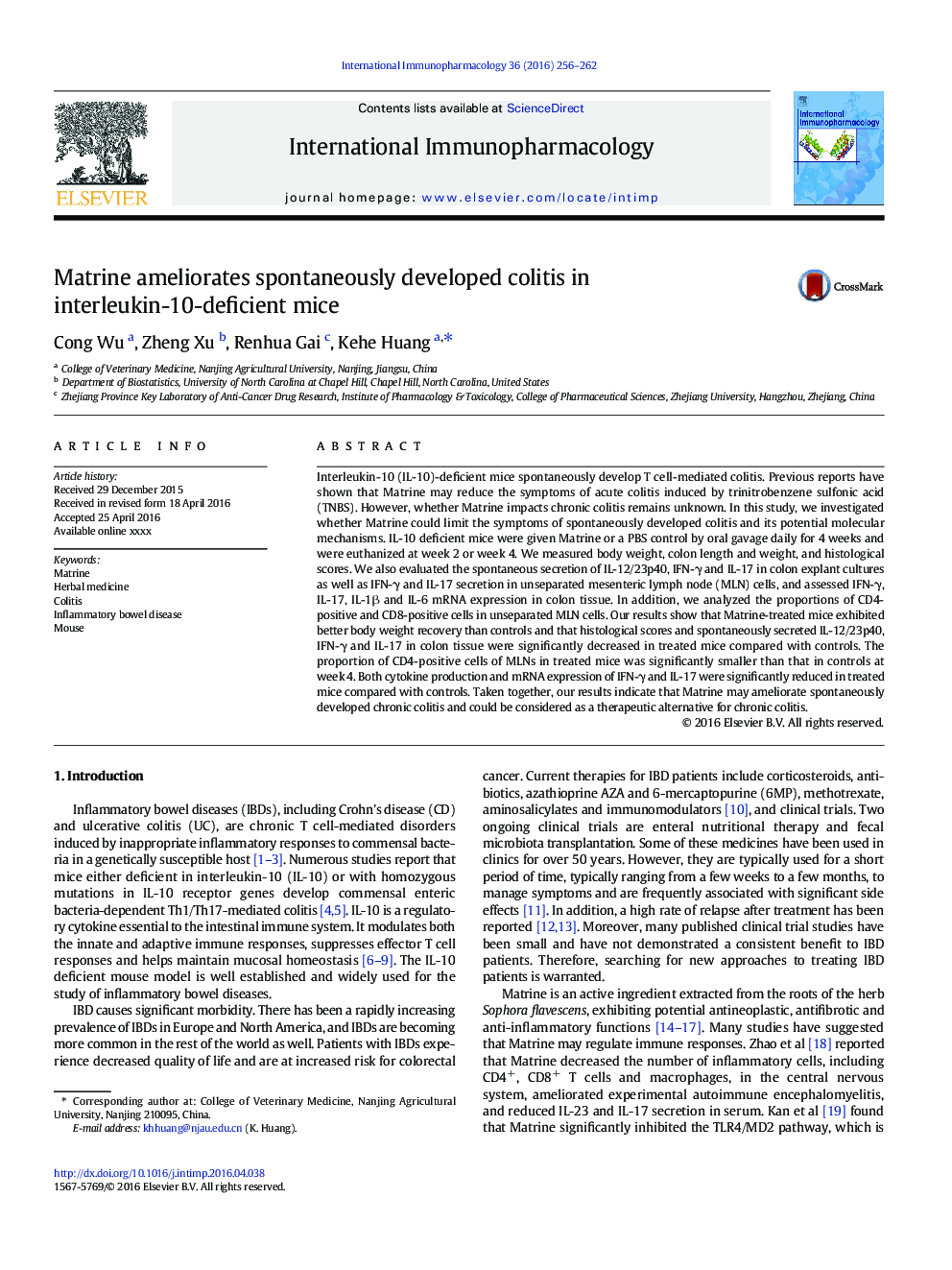| Article ID | Journal | Published Year | Pages | File Type |
|---|---|---|---|---|
| 5832016 | International Immunopharmacology | 2016 | 7 Pages |
Abstract
Interleukin-10 (IL-10)-deficient mice spontaneously develop T cell-mediated colitis. Previous reports have shown that Matrine may reduce the symptoms of acute colitis induced by trinitrobenzene sulfonic acid (TNBS). However, whether Matrine impacts chronic colitis remains unknown. In this study, we investigated whether Matrine could limit the symptoms of spontaneously developed colitis and its potential molecular mechanisms. IL-10 deficient mice were given Matrine or a PBS control by oral gavage daily for 4 weeks and were euthanized at week 2 or week 4. We measured body weight, colon length and weight, and histological scores. We also evaluated the spontaneous secretion of IL-12/23p40, IFN-γ and IL-17 in colon explant cultures as well as IFN-γ and IL-17 secretion in unseparated mesenteric lymph node (MLN) cells, and assessed IFN-γ, IL-17, IL-1β and IL-6 mRNA expression in colon tissue. In addition, we analyzed the proportions of CD4-positive and CD8-positive cells in unseparated MLN cells. Our results show that Matrine-treated mice exhibited better body weight recovery than controls and that histological scores and spontaneously secreted IL-12/23p40, IFN-γ and IL-17 in colon tissue were significantly decreased in treated mice compared with controls. The proportion of CD4-positive cells of MLNs in treated mice was significantly smaller than that in controls at week 4. Both cytokine production and mRNA expression of IFN-γ and IL-17 were significantly reduced in treated mice compared with controls. Taken together, our results indicate that Matrine may ameliorate spontaneously developed chronic colitis and could be considered as a therapeutic alternative for chronic colitis.
Related Topics
Life Sciences
Immunology and Microbiology
Immunology
Authors
Cong Wu, Zheng Xu, Renhua Gai, Kehe Huang,
